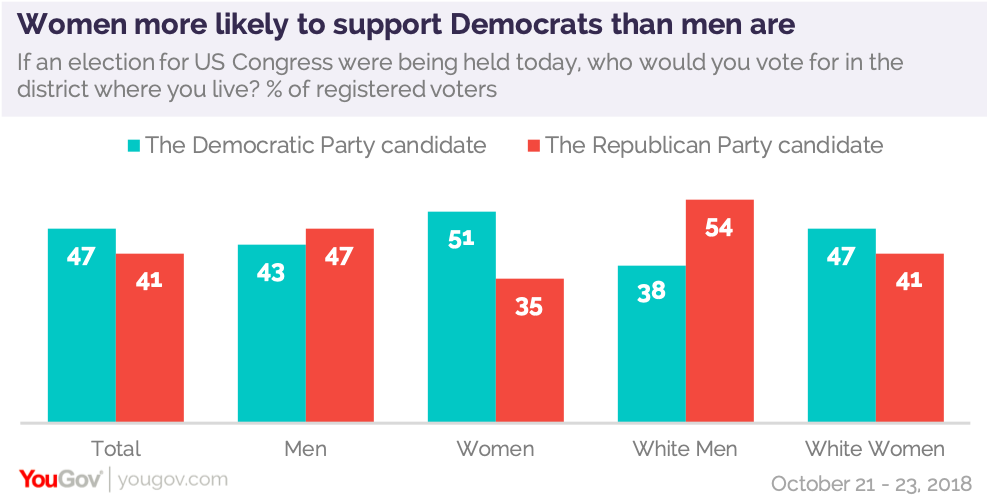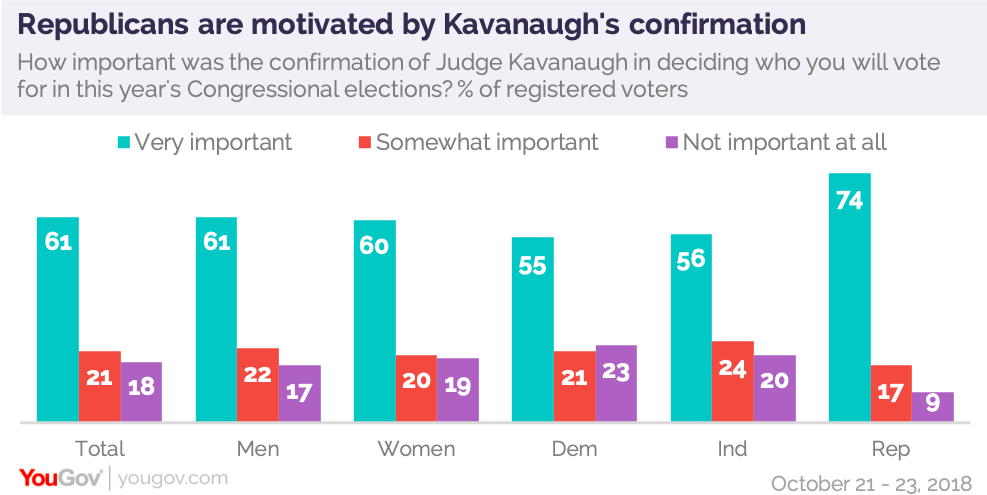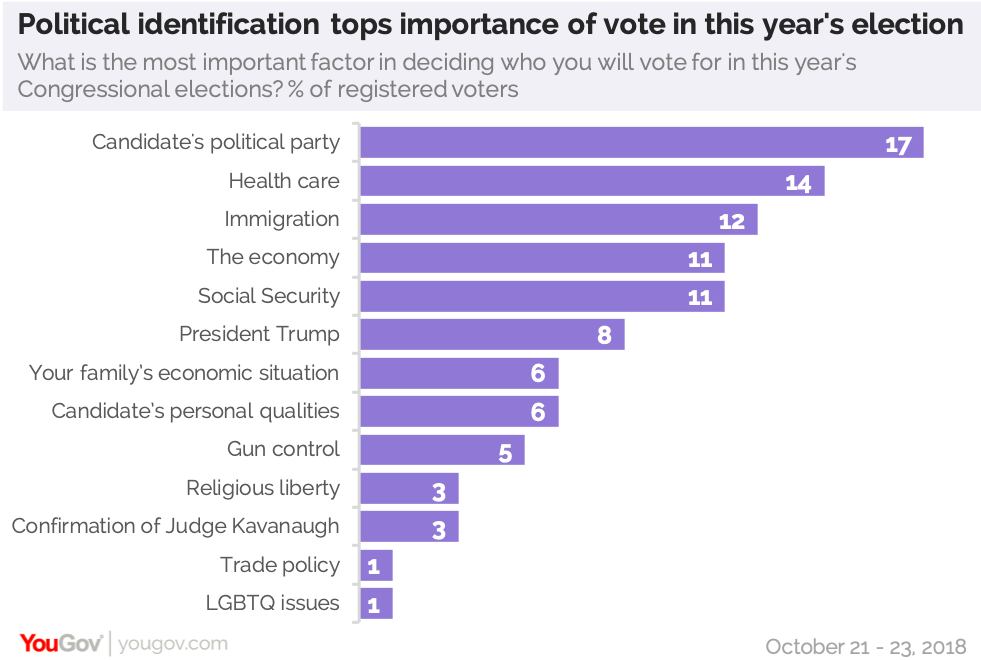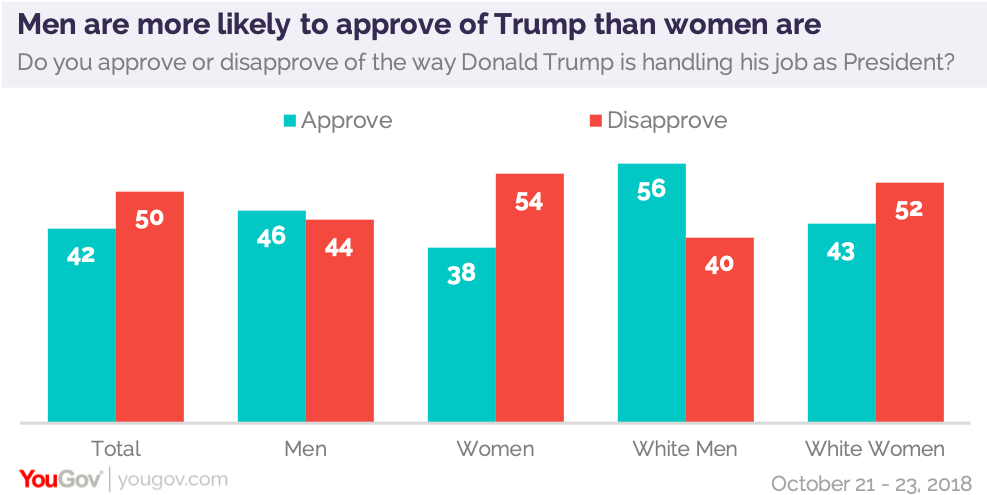Women more likely to support Democrats than men
Women and men have decidedly different points of view when it comes to the 2018 midterm elections. The latest Economist/YouGov Poll suggests that the potential gender gap in 2018 could be sizable. Although much of that difference can be attributed to party identification, there is a gender divide: women favor the Democrats when it comes to the generic House ballot, while men support Republicans.

Democrats retain a five-point lead in the generic ballot among those who say they will definitely vote.
The gender gap exists on identification as well as on vote. White men are more likely to identify as Republicans than as Democrats. 34% call themselves Republicans, while 25% say they think of themselves as Democrats (the rest identify as independents). White women are evenly divided between the GOP and the Democratic Party. White women with college degrees overwhelmingly identify as Democrats (43% to 20%), while those without a college degree are more likely to think of themselves as Republicans (35% Republicans to 27% Democrats).
Higher education levels mean more enthusiasm and a greater reported likelihood of voting among both sexes. In general, in this poll among registered voters, men are a few points more likely than women to call themselves more enthusiastic than usual in casting a ballot this year, and slightly more likely to say they will definitely vote.
The confirmation of Supreme Court Justice Brett Kavanaugh helped increase GOP enthusiasm in this election, even though Democrats retain an edge in the generic ballot. The confirmation itself is a motivating factor for six in ten voters, but now matters much more to Republicans than Democrats. Three in four Republicans say the Kavanaugh confirmation will be very important to their vote, a jump of eight points in the last week. Democrats and independents are less likely to say this. There is little difference between men and women in the reported importance of Kavanaugh’s confirmation.

What matters to voters is very different among those supporting Democratic candidates and those voting Republican. It’s almost as if they are voting in different elections. President Trump is a factor and so is party identification to both sets of voters. But for Democratic voters, health care dominates, while for Republican voters, it is immigration.

The percentage of GOP voters saying immigration was the factor that mattered most to their vote increased eight points jus in the last week, as the President attacks the caravan of Central American migrants walking towards the US in his campaign rallies.
Health care is a particularly important issue for voters under 30: 24% of them name it as the most important factor in their vote, compared with just 8% of those 65 and older (older voters are more likely than those younger to have health care coverage, mostly through Medicare). Independent and Republican women are more likely than men who identify as they do to name health care as the most important factor to their vote.
The biggest health care issue may be what to do about the Affordable Care Act (Obamacare), which continues to be divisive. Among registered voters, 47% approve of it, 45% do not. Independent men and women who are registered take different views of Obamacare: men disapprove 56% to 39%, women approve 48% to 42%.
One problem with the ACA is that it costs money. Three-quarters of the public believe that the health care system can be reformed without spending more money, if policymakers just “made the right decisions.”
Evaluations of President Trump, like Congressional vote preference, divide genders. Men approve of the way President Trump is handling his job, while women do not. This week, white women, especially those with college degrees, disapprove of the President.

Women also disapprove, 50% to 31%, when it comes to how the President is handling women’s rights.
See full toplines and tables results
Image: Getty







